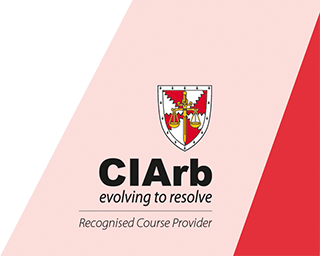Diversity & Equality Policy
Important statement on equality and diversity
LONDON SCHOOL OF MEDIATION POLICY STATEMENT
1. We aim to create an organisation and environment in which all people, regardless of disability, race, gender, religion, ethnicity or other characteristic are able to access our training. We have a clear and proven commitment to human rights, equality, and diversity around the world and have worked closely with organisations, governments, and individuals to establish mediation at the heart of nations, cultures, organisations, colleges, schools, groups, and societies.
2. It is accordingly fundamental to all that we do that we promote the same values within LSM. Please let us know - through the contact details at the bottom of this document - if you think we are failing. We will immediately investigate and correct anything which is found to fall below our high standards and which is in our power to remedy or to make a reasonable adjustment.
3. We will always act within our available resources to make such reasonable adjustments or to offer viable alternatives where circumstances frustrate that intention. We will act in good faith and with all the principles of the Equality Act 2010 at the heart of what we do, and at least comply with and usually exceed the law's requirement. We are however a small organisation with resources limited to that which we receive from each course and no external funding, capital, or other means of providing reasonable adjustments so we are constrained by the available resources at each venue and on each course which are not run for profit but to promote mediation.
4. Each of our courses, and everything we do, will be set in a culture that allows and encourages:
• all people to be able to give of their best
• neither bullying nor harassment nor discrimination
• all decisions to be based on merit.
5. We invite notice of any disability so that we can provide a reasonable adjustment where possible within the time and resources available. If no notice is given we will do our best to respond. This is facilitated by our annual Audit of Access to our courses and locations, which is monitored throughout the year and which informs decisions and planning. Our courses and locations are so far as possible designed to facilitate access by those with mobility issues, those who may need a carer or those who have a range of special dietary needs.
6. Because mediation involves extensive reading, considering body-language and tone or expression of voice, questioning, and listening, in an atmosphere of confidentiality where participants must agree to the presence of all persons, it is a profession that experience has shown is intrinsically more difficult or sometimes fundamentally unsuited for those with learning, reading, and complete visual and/or hearing disabilities.
7. Our courses are accordingly not easily completed by those who are unable to participate in unsupported facilitative mediation and realtime negotiation. We have worked with those who have such challenges but all recognise that the nature of mediation in practice usually requires significant mediator input which not all are able to give. We offer this caution as it is unrealistic to pretend that mediation is a universally accessible profession.
8. We are also limited by our not for profit resources in the additional support we can offer to those who are unable to see or hear sufficiently well to train without assistance - we can provide large print materials and additional time but are unable to fund additional help for technology from our available resources. We cannot offer, for example, a BSL signer or an induction loop given the limited funds each course generates and these fall outside the reasonable adjustments that we are required (and are able) to make because of the funding constraints. Trainees should discuss with us their needs and we will help in pointing toward relevant options.
9. The training venue we use in London is the Chartered Institute of Arbitrators, 12 Bloomsbury Square, London, WC1A 2LP which has full disabled access. Our other venues are generally city centre hotel conference rooms.
10. We will try our best within the available resources to meet the the needs of all trainees and staff through reasonable adjustments. If you think we can do more please discuss it with us.
11. This policy has been prepared under the leadership of the directors with the involvement of all staff who are trained and supported in equality and anti-discrimination. Along with the Audit of Access it will be reviewed annually or whenever there is an issue highlighted for earlier action.
12. The lead director on this policy to whom any complaints that are not satisfied by LSM staff or managers, should be directed is:
Judith Kelbie
Director
judith@londonschoolofmediation.com
_____________________________
+44 (0) 207 583 0444 London
This Policy is next due for review on 1st January 2023.

